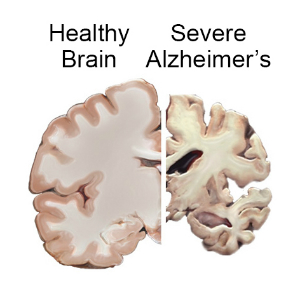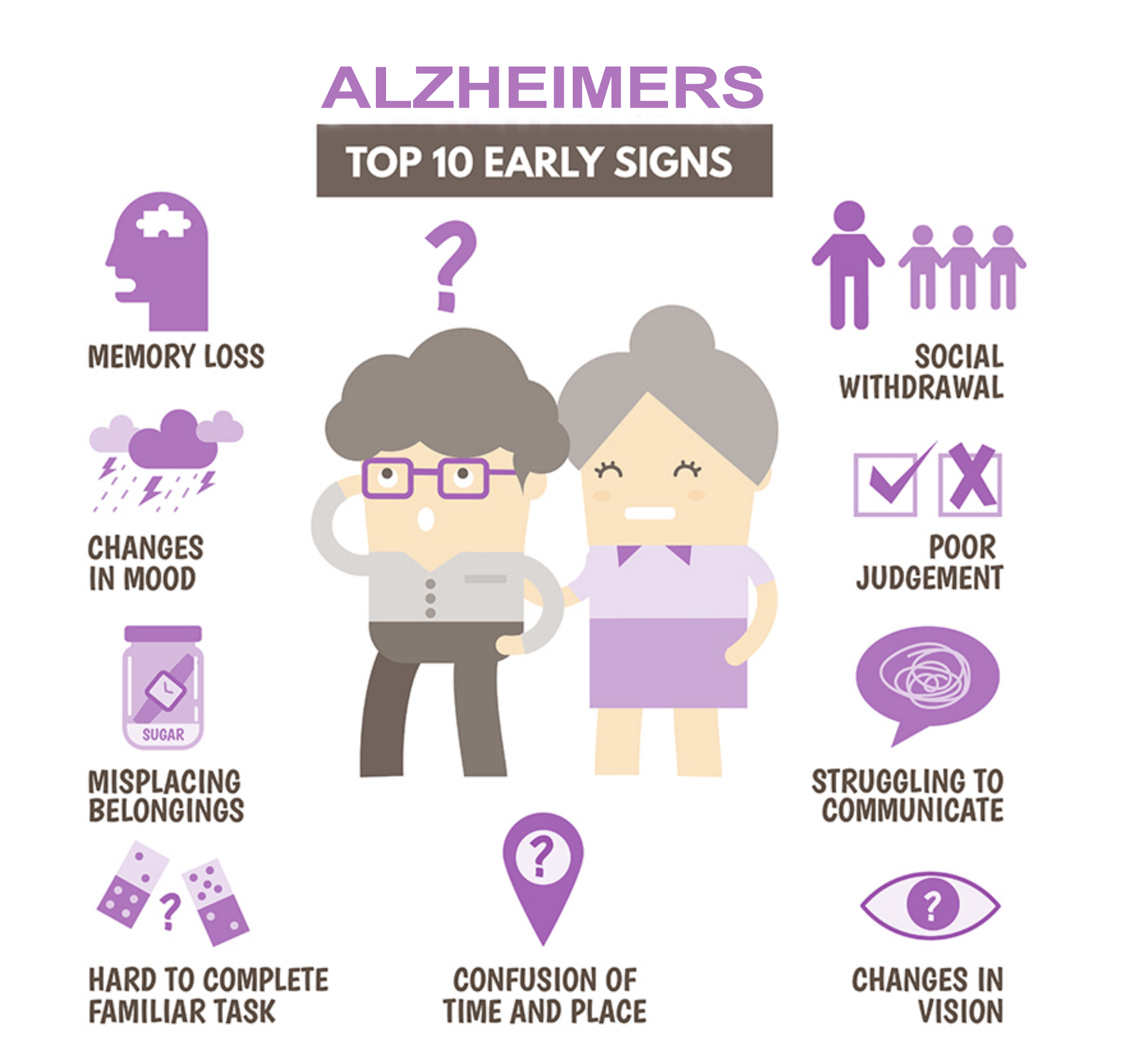June is Alzheimer’s and Brain Awareness Month. By Our Student Pharmacist, Laken Barnette.
What is Alzheimer’s?
Alzheimer’s is a brain disease that affects memory, thinking, and behavior. It is a form of dementia, which is a general term for a decline in mental ability that is severe enough to interfere with daily life.
Alzheimer’s is the most common cause of dementia as it accounts for 60-80% of all dementia cases. Experts suggest that more than 5.8 million Americans have dementia caused by Alzheimer’s. It is the sixth leading cause of death in the United States and ranks as the third leading cause of death for older people. For most patients with Alzheimer’s, symptoms first appear in their mid-60s but for some, symptoms can show up earlier in life.
What causes Alzheimer’s?
Scientists aren’t entirely sure what causes Alzheimer’s Disease in most people. A genetic mutation can be the cause in people with early-onset Alzheimer’s. But those who have late-onset, it could be a mix of genetic, environmental and lifestyle factors. It is believed that certain vascular and metabolic conditions such as heart disease, high blood pressure, diabetes, and obesity can put people at a higher risk of Alzheimer’s. It is also likely that changes in the brain may begin a decade or more before symptoms appear.
So, what does Alzheimer’s disease do the brain?
Abnormal protein deposits begin to form amyloid plaques and tau tangles throughout the brain. These plaques and tangles prevent once-healthy neurons from connecting with other neurons, which causes them to die. It is thought that many other complex brain changes play a role as well. Initially, the damage occurs in the memory centers of the brain. As more neurons die overtime, additional parts of the brain become more affected and begin to shrink.
What are the signs and symptoms of Alzheimer’s Disease?
Usually, the first clinical sign of Alzheimer’s Disease is memory loss. Unfortunately, this is not a diagnosing symptom. Some people with memory problems have a condition called mild cognitive impairment (MCI). While older people with MCI are at higher risk of developing Alzheimer’s Disease, not all do, and some can even go back to normal cognition. Researchers are currently studying certain biomarkers to detect early changes in the brains of people with MCI and people who are at a greater risk of Alzheimer’s Disease.
What are the stages of Alzheimer’s Disease?
Early-stage Alzheimer’s
During early-stage Alzheimer’s, the patient may function independently. While this patient can still do normal daily activities, they might feel that they are having memory lapses. Symptoms might not be incredibly apparent at this stage, but family members and close friends might notice these changes.
Middle-stage Alzheimer’s
Middle-stage Alzheimer’s is usually the longest stage and can last for years. Symptoms become more pronounced. The patient may have negative changes in behavior and act in unexpected ways. Also, they may have trouble remembering personal history, experience changes in sleep patterns, and have an increased tendency to wander and become lost. In this stage, the patient can still participate in normal daily activities with assistance.
Late-stage Alzheimer’s
In the final stage of Alzheimer’s, dementia symptoms become severe. Patients eventually lose the ability to respond to their environment, carry on conversations, and control their movements. In the late-stage, patients need extensive care and supportive services.
While currently there is no cure for Alzheimer’s Disease, it is important to know the signs and symptoms of the disease as there is treatment to slow the progression. An early diagnosis can allow patients to begin treatment early to preserve daily functioning for longer and open them up to opportunities to participate in clinical trials for new treatments for Alzheimer’s.
Sources:
Alzheimer’s Disease Fact Sheet. (2019, May 22). National Institute on Aging.
https://www.nia.nih.gov/health/alzheimers-disease-fact-sheet#treating
Stages of Alzheimer’s. (n.d.). Alzheimer’s Association. Retrieved May 17, 2021, from
https://www.alz.org/alzheimers-dementia/stages
What is Alzheimer’s Disease? | CDC. (2020, October 26). Centers of Disease Control and
Prevention. https://www.cdc.gov/aging/aginginfo/alzheimers.htm




